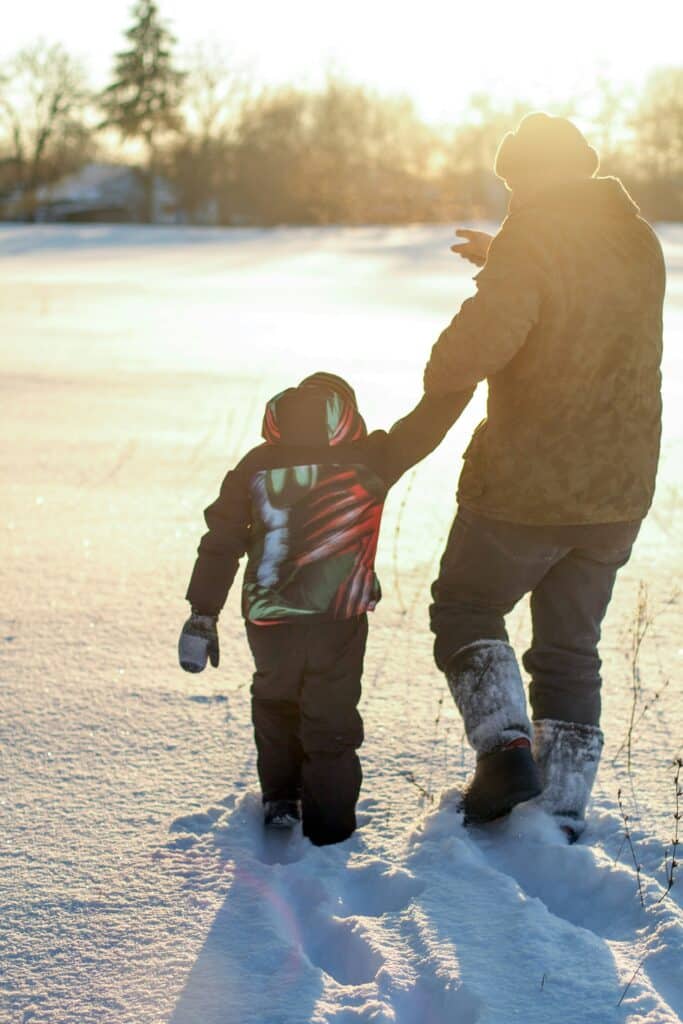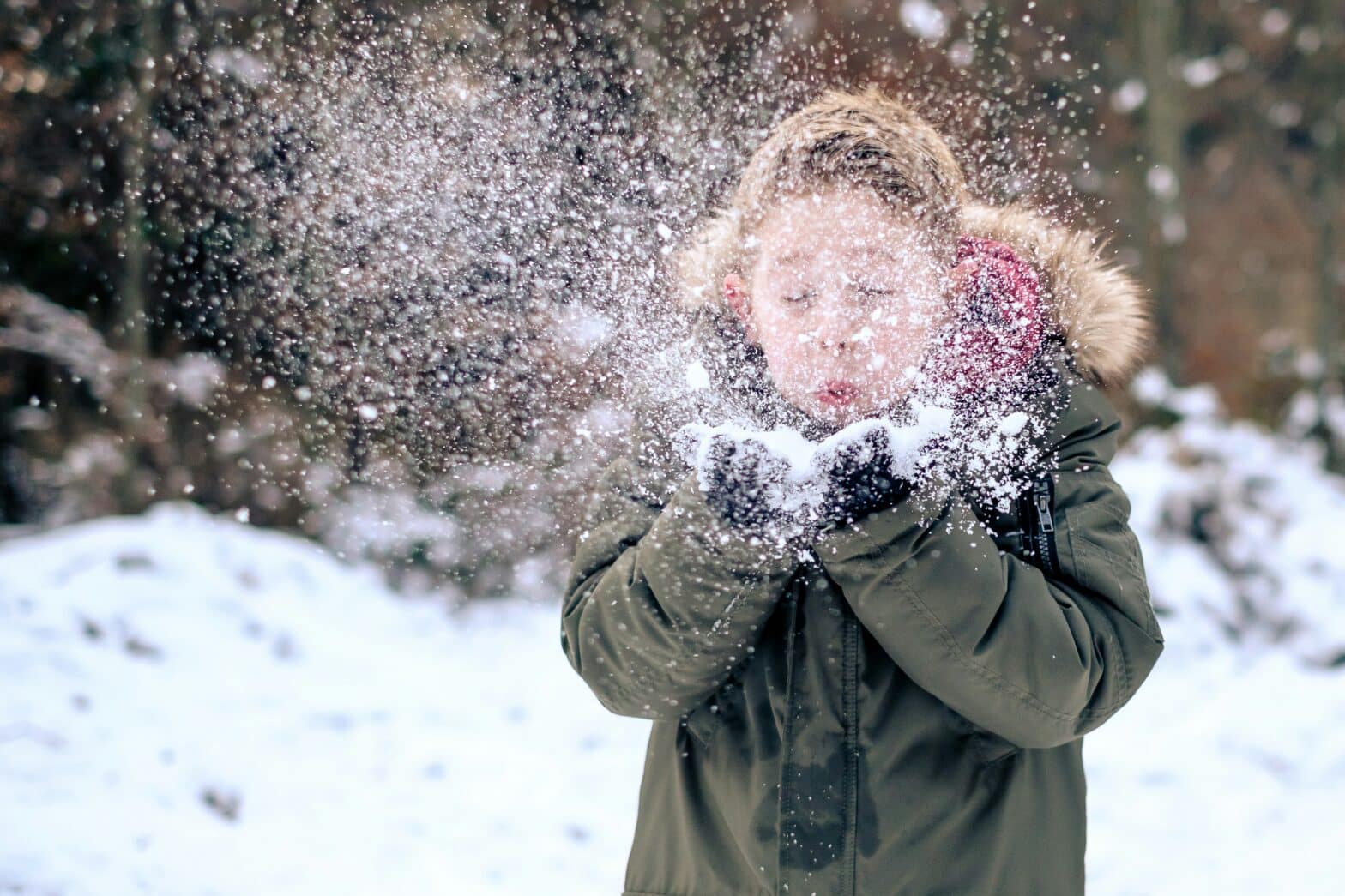One of the challenges we can face when moving to a new country is undoubtedly the weather. For many families, winter can be particularly unsettling, especially if you come from warmer climates. Keeping children warm is essential to ensure their wellbeing and comfort in unfamiliar surroundings.
Here are some practical tips and recommendations on how to dress the little ones. Often, fear of exposing them to the cold and making them sick means that we take many protective measures that are not appropriate. We need to protect ourselves from the cold, yes, but with common sense. Here are some common mistakes we make:
Sudden temperature changes
It is almost impossible to avoid sudden temperature changes from hot to cold and vice versa. The excellent heating in shops, restaurants and other establishments, as well as in our homes, means that we are out and about in extreme environments. It is important to keep children dressed in layers so that it is easy to adapt to the different environments without getting too warm and sweating excessively. This is not uncommon, especially in young children who cannot express their discomfort clearly. This is one of the reasons why in the parents in Nordic countries sometimes leave the stroller or pram outside when popping in a shop or even eating out in a restaurant when the baby is napping.
Not ventilating your home or car
Lack of ventilation due to fear of the cold coming in from outside is more harmful than low temperatures. Lack of ventilation encourages the spread of viruses that cause respiratory infections. Places where many children congregate, such as schools, school transport or homes, should be ventilated daily to freshen the air and cool the rooms. A ventilated environment reduces the likelihood of infection.
Ice cold or very hot drinks
In winter, it is best to drink warm or hot drinks, but do not overdo it. Very cold or excessively hot drinks irritate the mucous membranes in the throat and children are more likely to get pharyngitis or sore throats. Ice cold drinks do not cause illness and drinking very hot drinks, although they may be comforting and pleasant in winter, will not protect us.
Overdressing
The joke goes: A jacket is an article of clothing that parents put on their children when they themselves are cold. Children are very active and never seem to get cold. Although we cannot compare the feeling of cold between an old man and a five-year-old child, we must remember that both need a coat that is appropriate to their thermal sensation and the outside temperature. Overdressing is not good because it makes the child sweat and can be counterproductive if it is very cold.
This can happen when a child is playing outside and is constantly on the move. In these circumstances, they do not need to overdress as their body temperature will rise naturally. Once the activity is over, it is advisable to get them dressed and make sure they rest, preferably in a closed area where the temperature is not so low.

Self-medication to treat or prevent infections
A basic premise in our children’s health is that if we are worried about their health, we must go to the paediatrician. In winter, not everything is a cold and not everything can be cured with antibiotics. Most infections are viral and antibiotics are only prescribed if the paediatrician suspects a bacterial infection. As for dietary supplements to prevent colds or boost your child’s immune system, always consult your paediatrician. Misleading advertising often leads us to offer preventive treatments that are ineffective and may have adverse effects.
Bathing with very hot water
If the temperature at home is correct, bathing should be done as usual, with lukewarm water to avoid burning the skin of young children, especially babies. In addition, in winter the skin dries out more, so it is beneficial to bathe the child with a soap without detergents and to moisturise the skin after the bath with a vegetable oil (almond) or a moisturising cream specially designed for babies. Moisturising is important because wind and cold damage the lipid barrier of the skin and lips.
Forgetting to use sunscreen
Even though in winter the sun is not so strong and does not harm us, we should not forget that when doing outdoor or mountain activities, such as trekking or skiing, it is highly advisable to apply sunscreen. This is because at high altitudes the radiation is strong and when there is snow it acts as a mirror for the sun’s rays. In this way we can avoid sunburn and prevent melanoma or skin cancer in childhood.
Not going outside
We cannot keep our children in a bubble all winter, so it is important to take all the necessary measures to get out as much as possible, to go for a walk, to go to the park or at the weekend to a natural environment to walk, get some sun and breathe clean air…
Are you and your family ready for winter? We hope so. If you have any doubts, have caught the flu or have any other questions? Please know that Foyer Global Health offers you 24/7/365 access to a doctor through the ecare portal. You can ask the doctor any non-emergency questions. Note that you can add your children as a dependent member of your policy, and therefore benefit from the online consultation as well.
Want to know more about the service? Please visit the ecare platform,register and request your appointment now:


